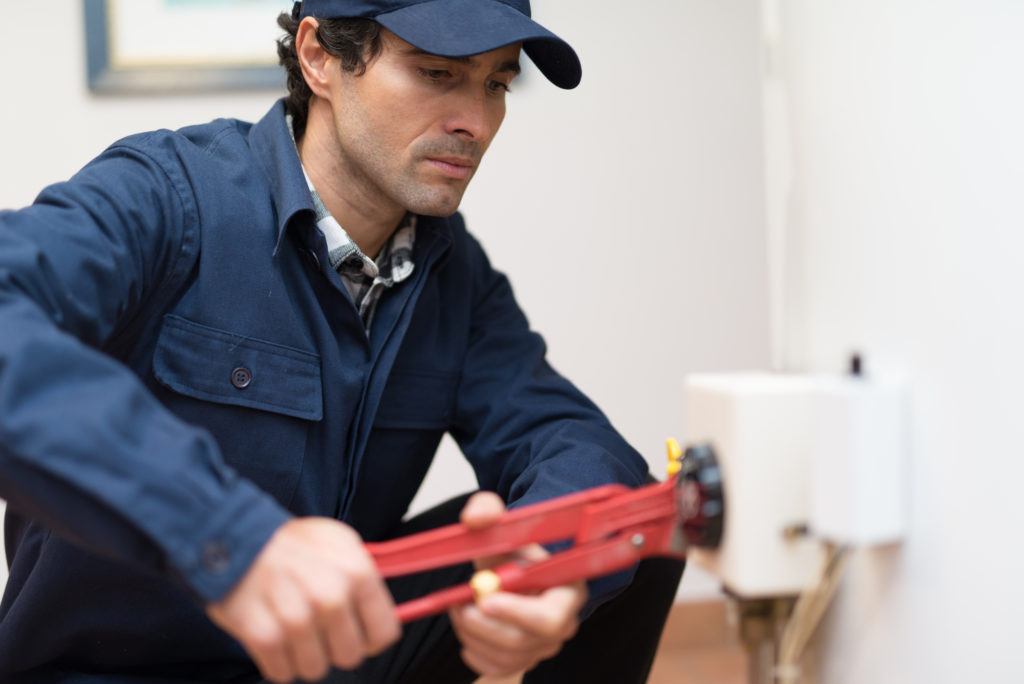Understanding Heater Problems: A Step-By-Step Guide For The Most Difficulties Issues
Understanding Heater Problems: A Step-By-Step Guide For The Most Difficulties Issues
Blog Article
Just how do you feel when it comes to Common Problems with Your Home Water Heater?

Envision starting your day without your regular hot shower. That currently sets an inadequate tone for the remainder of your day.
Every residence requires a reliable hot water heater, but just a couple of know exactly how to take care of one. One simple method to maintain your water heater in leading form is to check for faults routinely as well as repair them as soon as they show up.
Bear in mind to turn off your hot water heater before sniffing around for mistakes. These are the hot water heater mistakes you are most likely to encounter.
Water too warm or too cool
Every hot water heater has a thermostat that establishes just how hot the water obtains. If the water entering your house is also hot in spite of setting a practical maximum temperature level, your thermostat may be malfunctioning.
On the other hand, also cold water might be because of a failed thermostat, a busted circuit, or inappropriate gas circulation. For example, if you utilize a gas hot water heater with a busted pilot burner, you would get cold water, even if the thermostat remains in best problem. For electrical heating systems, a blown fuse may be the culprit.
Not enough hot water
Water heaters can be found in numerous dimensions, relying on your warm water demands. If you lack warm water before everybody has had a bath, your hot water heater is too small for your family size. You should think about mounting a bigger hot water heater container or opting for a tankless water heater, which occupies much less space and also is more sturdy.
Weird noises
There are at the very least five sort of sounds you can learn through a water heater, but one of the most common analysis is that it's time for the water heater to retire.
To start with, you ought to know with the typical seems a hot water heater makes. An electrical heater may appear various from a gas-powered one.
Popping or banging sounds typically mean there is a piece of sediment in your containers, and it's time to cleanse it out. On the other hand, whistling or hissing noises might simply be your valves allowing some stress off.
Water leaks
Leaks can originate from pipes, water links, valves, or in the worst-case circumstance, the tank itself. In time, water will certainly corrode the tank, and discover its way out. If this happens, you require to change your water heater immediately.
However, prior to your modification your entire tank, make sure that all pipes are in place which each shutoff functions completely. If you still need help determining a leak, call your plumber.
Rust-colored water
Rust-colored water implies among your water heater components is rusted. It could be the anode pole, or the storage tank itself. Your plumber will have the ability to identify which it is.
Warm water
No matter exactly how high you established the thermostat, you won't obtain any kind of warm water out of a heater well past its prime. A hot water heater's performance may reduce with time.
You will certainly additionally get warm water if your pipelines have a cross connection. This suggests that when you switch on a tap, hot water from the heating unit flows in alongside normal, cold water. A cross connection is very easy to area. If your warm water faucets still run after closing the hot water heater shutoffs, you have a cross link.
Discoloured Water
Corrosion is a significant root cause of dirty or discoloured water. Corrosion within the water tank or a falling short anode pole could cause this discolouration. The anode rod safeguards the container from rusting on the within and must be checked yearly. Without a rod or an appropriately functioning anode rod, the hot water swiftly wears away inside the container. Call a professional hot water heater professional to determine if replacing the anode rod will certainly take care of the trouble; if not, replace your water heater.
Conclusion
Ideally, your water heater can last 10 years prior to you need a modification. Nonetheless, after the 10-year mark, you may experience any one of these faults more routinely. At this moment, you should add a brand-new water heater to your budget.
How To Troubleshoot 3 Common Water Heater Problems in Twin Cities
The Water Heater Is Leaking
A leaky cold water inlet valve A loose pipe fitting A leaky temperature and pressure relief valve A corroded anode rod A cracked tank Turn Off Your Water Heater:
Shut off your gas water heater by turning the gas valve on the unit to the “OFF” position. Shut off your electric water by switching its power off at your electrical panel. Look for a two-pole breaker labeled “water heater” and turn it to the “OFF” position. Move the ball valve connected to the water heater to be perpendicular to the piping at a 90° angle. Look for the Leak:
Depending on whether the water is coming from the tank's top or bottom, you’ll want to look for the leak in different locations.
If the leak comes from the top of the tank, carefully look for water escaping from the cold water inlet valve or loose pipe fittings. Rusted hot and cold water valves can have loose connections with the tank, with water leaking out of them.
https://mspplumbingheatingair.com/blog/how-to-troubleshoot-3-common-water-heater-problems
I came across that piece on Common Problems with Tank Water Heaters while browsing the web. If you liked our page if you please do not forget to share it. I appreciate reading our article about Common Problems with Your Home Water Heater.
Call, we respond! Report this page